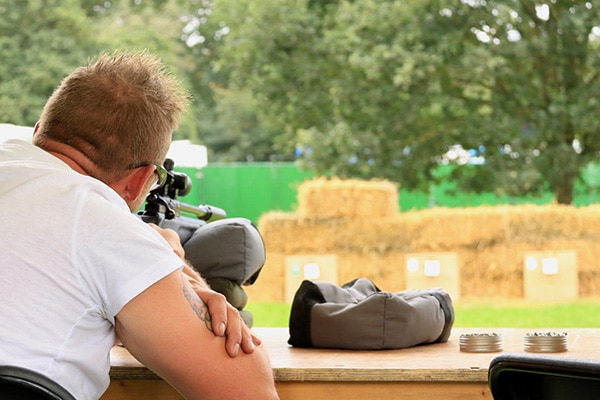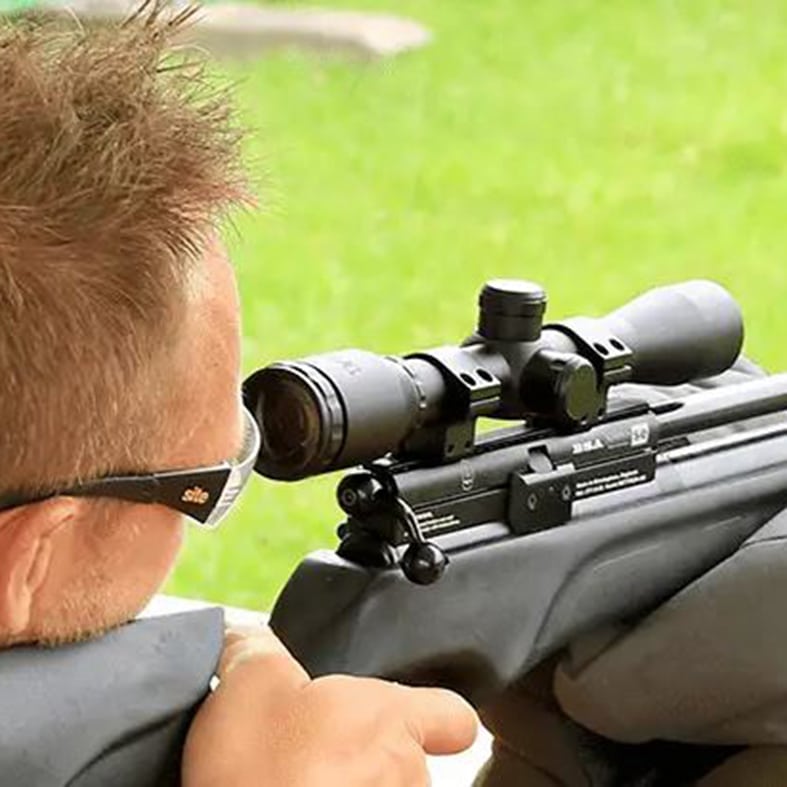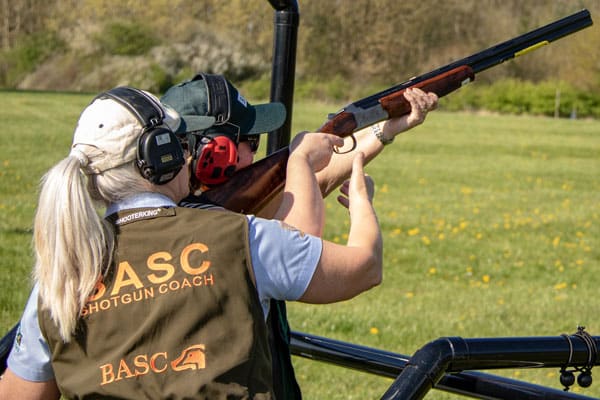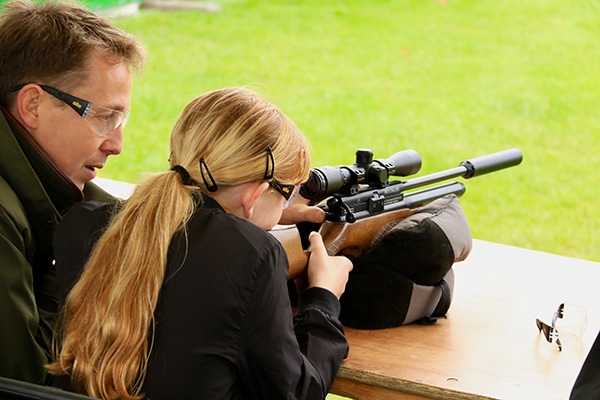
Airgun clubs
If you want to find your local airgun club, our directory will help you find somewhere to start, get coaching and take part in competitions.
Get information on the legal shooting season for mammals and birds in the UK.
Learn about our current conservation projects and how you can get involved.
Comprehensive information and advice from our specialist firearms team.
Everything you need to know about shotgun, rifle and airgun ammunition.
Find our up-to-date information, advice and links to government resources.
Everything you need to know on firearms law and licensing.
All the latest news and advice on general licences and how they affect you.


Scotland Airgun licensing in Scotland
To own a low-powered airgun in Scotland you now have to be licensed, much the same as if you wanted to own a shotgun or a firearm. Such a licence is called an Air Weapon Certificate (AWC). An application is made to Police Scotland on an AWL1 form, then ‘light touch’ checks are conducted to assess your suitability to be granted a certificate and to own or possess an airgun. Any person who is granted an air weapon certificate may possess numerous airguns. It is the person who is licensed, not the airgun.
The definition of air weapons, for the purposes of the 2015 Act, covers all low-powered air weapons with a muzzle energy exceeding 1 joule (0.74 ft/lbs), but not those required to be held on a firearms certificate under the 1968 Act i.e. air rifles with a muzzle energy exceeding 12ft/lbs (16.27 joules), or 6ft/lbs (8.13 joules) for an air pistol.
The licensing regime also covers the component parts of such airguns and any accessory designed or adapted to diminish the sound of their discharge.
There are two main criteria you would need to satisfy to be granted an Air Weapon Certificate and these will form part of the application process.
The first is that you would need a ‘good reason’ to own an airgun. Having somewhere suitable to shoot over is key. If you have a reasonably-sized garden where you have a safe back-stop, as well as being certain that the pellet will not cross your boundary, then plinking or informal target shooting here would be sufficient. Another scenario could be if you were required to conduct pest control on either your land, or land on which you had written permission to shoot on. Police-approved airgun clubs are also accepted as a venue to shoot at if you were to become a member.
The second part is where you would have to provide evidence that you are a ‘suitable person’. Any indication of a criminal history, mental health issues or addictions may require further enquiries by Police Scotland.
Once you have personally satisfied these reasons then you can think about filling in your AWL1 application. Forms can be accessed by using this link.
As part of the application process you will have to provide two passport-style photographs, together with the details of an independent verifier – a person who has known you for a minimum of two years. This person must be of good character and not a relative, a Registered Firearms Dealer, a constable, a member of Police Scotland staff or a member of the Scottish Police Authority and must ordinarily reside within the UK.
All convictions, including motoring convictions, must be declared upon application. Failure to do so may result in your application being withdrawn. Spent convictions must also be included as they are never classed as spent under this legislation.
There are a number of specific exclusions from the licensing regime.
If you are already a shotgun or firearm certificate holder then you will not be required to apply for an air weapon certificate until the latter of your current certificate renewals. This is a “transitional period” that the legislation has put in place to allow existing certificate holders to possess and use the air weapon as normal until renewal. Once your current certificate expires you will be required to apply for an AWC to run alongside your shotgun certificate (SGC) or firearm certificate (FAC). If your certificates are co-terminous then it will all be processed at the same time. You will then have three separate certificates covering the next five-year term. The cost of the AWC will be reduced for existing certificate holders to just £5.
If you are a shotgun or firearm certificate holder then you should not enter any airguns you may have onto your certificates. A shotgun certificate relates only to shotguns and a firearm certificate to firearms (unless your airgun is over the legal 12ft/lbs muzzle energy limit, in which case it should already be recorded on your FAC).
Although you would be allowed to possess and use your airguns you may not buy, receive or be gifted another airgun that you did not already hold before January 1 2017.
Airguns should be stored away from casual access at all times when not in use. While there is no legal requirement for them to be locked in a steel cabinet, necessary steps must be made to ensure that someone without a licence to possess an airgun cannot gain access to one. This also includes during transportation.
Security suggestions could include locked cupboards, trigger locks, trigger guard cables or existing gun cabinets already in use for other firearms.
If you are over 18 and visiting Scotland with an airgun you may need to apply for a visitor’s permit. These will be issued by Police Scotland and may enable those granted a permit to possess, acquire, use, or purchase an airgun during the qualifying period, without holding an actual air weapon certificate.
If you were part of, or acting for a club or team, then a person may, on behalf of a group of 2 to 20, apply for individual licences for group members.
Shotgun or firearm certificate holders outside of Scotland may possess or use an airgun in Scotland until their current SGC or FAC licence renews or expires. Following this, a visitor permit must be applied for. Full air weapon certificates may be issued to residents outside of Scotland if good reason, such as frequent visiting, is evidenced. Such certificates may last for five years compared to visitor permits that only run for a stated length of time, to a maximum of 12 months. Permits are also available to those aged 14-17. Certain conditions may apply but parental/guardian consent will be required.
Certain conditions may be applied to an AWC. It must be signed by the holder and any conditions imposed by the chief constable must be adhered to. Failure to do this may result in revocation or prosecution.
Police permits may be issued on application to enable an individual to possess, acquire or sell an airgun, without holding an air weapon certificate.
An example of this would be if an airgun was found in a house clearance or hidden in a loft.
A full certificate would not be issued but a permit may be granted to allow the holder to dispose of the gun.
Young people aged 14-17 may be granted an air weapon certificate. This would enable them to borrow an airgun and shoot over ground on which they have written permission from the land owner or occupier of the sporting rights.
If aged under 14 then that person could still use an airgun, providing that they were supervised at all times by an adult aged 21 or over with a valid certificate.
Persons under 18 may not purchase, own, hire or accept as a gift any airgun. Persons under 18 may not even purchase airgun ammunition.
In order to buy an airgun in Scotland you must have a valid air weapon certificate. You cannot purchase, acquire, hire or be gifted an air weapon even if you are a shotgun or firearm certificate holder. Registered Firearms Dealers may buy and sell airguns.
The organiser of an event may be granted an event permit, allowing others to borrow, hire, use or possess an airgun, without holding an air weapon certificate. A copy of the permit must be clearly displayed at the event and any conditions applied must be adhered to.
A person may apply on behalf of a club for approved air weapon club status. A point of contact will be nominated from the club (Chair) whose name shall be recorded on the certificate. Any club given approved status by Police Scotland may act as a place to shoot for members’ certificate applications. The ‘good reason’ section would be satisfied under target shooting within the club.
As this legislation came into effect on January 1 2017, Police Scotland will not automatically issue a five-year licence as this may subsequently cause a backlog in renewals in five years’ time.
When granted an air weapon certificate you will be notified as to the duration of the licence (up to a maximum of five years). This will be reflected in the cost of the certificate so do not send any money until Police Scotland contact you with the full cost of your certificate.
There are various levels of licences and permits. Below is a breakdown of the current costs:
Upon request from a warranted police officer you are required to produce your air weapon certificate, or any documentation that would show your entitlement to possess an air weapon. This documentation could be your shotgun or firearm certificate if you were in the transitional licensing period where you did not yet require an air weapon certificate.
For further information click here
Or contact BASC Scotland on 01350 723226 or by email.

If you want to find your local airgun club, our directory will help you find somewhere to start, get coaching and take part in competitions.

Looking to start rifle, air rifle or shotgun shooting? Our firearms awareness courses offer a comprehensive introduction to your chosen discipline(s).

Sign up to our weekly newsletter and get all the latest updates straight to your inbox.
© 2023 British Association for Shooting and Conservation. Registered Office: Marford Mill, Rossett, Wrexham, LL12 0HL – Registered Society No: 28488R. BASC is a trading name of the British Association for Shooting and Conservation Limited which is authorised and regulated by the Financial Conduct Authority (FCA) under firm reference number 311937.
If you have any questions or complaints about your BASC membership insurance cover, please email us. More information about resolving complaints can be found on the FCA website or on the EU ODR platform.
This website uses cookies so that we can provide you with the best user experience possible. Cookie information is stored in your browser and performs functions such as recognising you when you return to our website and helping our team to understand which sections of the website you find most interesting and useful.
Strictly Necessary Cookie should be enabled at all times so that we can save your preferences for cookie settings.
If you disable this cookie, we will not be able to save your preferences. This means that every time you visit this website you will need to enable or disable cookies again.
This website uses Google Analytics to collect anonymous information such as the number of visitors to the site, and the most popular pages.
Keeping this cookie enabled helps us to improve our website.
Please enable Strictly Necessary Cookies first so that we can save your preferences!
More information about our Cookie Policy